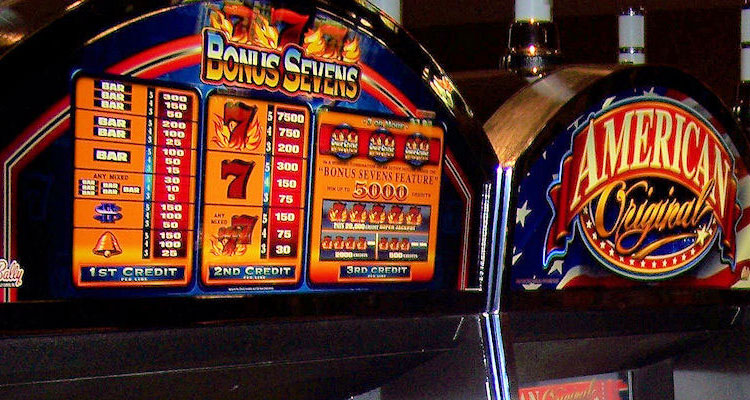Dear Mark: I believe in the theory that slot machines do not act in a random manner but are fixed to pay out at the leisure of casino management. I just can’t believe it can be any other way. Fred C.
Total agreement here, Fred. Slot machines are fixed, but not for the reason you suspect. That said, with any luck, my parallel analogy should dispel your theory that slot machines are rigged. I hope that this will be your “waking up from the Matrix” moment.
For starters, Fred, can we at least come to an agreement that every time you flip a coin, its outcome is random? Now, Fred, humor me with some back-and-forth wagering. First, one simple rule.
At $1 a flip, every time you win, I will graciously pay you 80 cents. When I win, you grudgingly must pay me $1.
Slot machines, like my coin flipping scenario, operate the same way. A cybernetic one-armed bandit doesn’t get its edge from being non-random, but by setting payout rules such that the money taken in is more than the money paid out. It’s just that simple, Fred.
Dear Mark: It is bad enough that where I play that they only pay 6-5 for a blackjack on a hand-shuffled game, but, it also seems that I get far less than my fair share of them. Is there a certain amount of blackjacks that I should be getting over a two-hour period on a single-deck game? Jeff R.
With any luck, Jeff, NONE, as my goal is to influence you to refrain from playing a 6-5 game in the first place. More on that “none” in a moment.
Under typical playing conditions, you can expect to get a blackjack once every 21 hands. Assuming a gambling timeline of two hours, you should be dealt 100 hands per hour, 200 hands total. By receiving a blackjack once every 21 hands, you should theoretically get approximately 10 blackjacks over a two-hour period.
Streaks, of course, happen, so you may experience more or fewer in a two-hour period. Still, on average, Jeff, you can plan on getting 10.
The reason that I am rooting for you getting none is that you should never play any blackjack game, single deck included, which only pays 6-5, instead of 3-2 for a blackjack.
The drawback of the 6-5 game is that if you bet $10 and get a blackjack, you receive only $12 instead of $15. Those 10 blackjacks are costing you $3 a pop. Forking over an extra $30 to the house for the privilege of playing on a hand shuffled game isn’t worth it.
Unfortunately, the uneducated are flocking to 6-5 single-deck games because they erroneously believe that a single-deck blackjack game offers the best odds. That is true when a blackjack pays 3-2. But, the payoff difference spirals from 0.15% with perfect play to a casino advantage 1.45% when you inadvertently accept the reduced blackjack payout 6-5 payoff.
The big winner of this sizable differential payoff will always be the house, never you.
Gambling Wisdom of the Week: “The chief factor in the gambling habit is the belief in luck; and this belief is apparently traceable, at least in its elements, to a stage in human evolution antedating the predatory culture.” – Thorstein Veblen, The Theory of the Working Class (1899)



